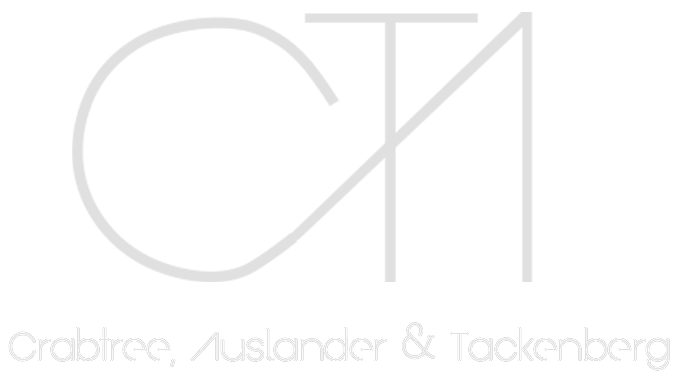Law360 (April 10, 2018, 9:13 PM EDT) — A Ninth Circuit judge on Tuesday criticized lead counsel for indirect buyers of cathode ray tubes who secured a $576.8 million bundle of antitrust settlements with tech giants like Philips and Panasonic, saying it’s a “problem” that they secured the nationwide deals without looking out for people in Massachusetts, New Hampshire and Missouri.
U.S. Circuit Judge Richard Clifton noted that the settlements released claims on behalf of consumers in the three states, even though indirect buyers in those states didn’t get any money from it or have counsel or plaintiffs representing them.
“I know defendants want complete peace, but you can’t always get what you want and in this case who’s at the table looking out for the people in Massachusetts, New Hampshire and Missouri? Nobody,” the judge said.
The judge’s comments came during a hearing on an objectors’ appeal of $577 million worth of settlements between indirect purchasers and electronics companies — including Philips Electronics North America Corp., Panasonic Corp. and Samsung SDI Co. Ltd. — that would resolve consolidated multidistrict litigation.
The MDL centers on claims that the companies divvied up the cathode ray tube market and cut down on supply to boost prices of cathode ray tubes used in TVs and computer monitors from early 1995 through late 2007. A district court approved the last of the deals in July 2016, amid objections by indirect purchasers in Massachusetts, Missouri and New Hampshire and two attorneys general.
The objectors appealed the rulings to the Ninth Circuit, and three attorneys representing them argued during the hearing Tuesday that lead class counsel, Mario Alioto of Trump Alioto Trump & Prescott LLP, committed legal malpractice by dropping lead plaintiffs in the states from the litigation right before reaching the settlements.
The objectors’ attorneys also argued that Alioto had wrongly claimed that consumers in those states didn’t have viable claims, even though he had a duty to represent everyone in the class and vigorously prosecute their claims. They also challenged the $173 million attorneys’ fee award, saying Alioto’s hourly bill-rate multiplier was based on “nothing but theater.”
But the indirect buyers’ attorney, Myron Moskovitz of Moskovitz Appellate Team, urged the appeals court to keep the settlement intact, arguing that any claims from the three states are barred by the statute of limitations. Also, Moskovitz said Alioto had a duty to be fair to everybody, and when he saw that the damages claims from the individuals in the three states were worthless and only had a nuisance value, he didn’t think it was fair to pursue them. Ultimately, the objectors shouldn’t be allowed to destroy the settlements when the money from the companies is already in the bank, Moskovitz said.
“I think the court should be wary of weaponizing objectors and allowing them to upset these settlements,” he said.
But Judge Clifton rebuffed Moskovitz’s comment, emphasizing that indirect buyers in the three states were releasing claims without getting anything in return.
“What’s sacrosanct about a settlement, when you and I strike a deal that makes him over there suffer?” Judge Clifton said. “I don’t want to upset settlements, but we don’t have a right to speak for other people.”
The judge said he understands the practicality of settlements, but the “core problem” in this case is that some people with claims get money and some people don’t, and the class attorneys purport to represent both groups. It may be that indirect buyers in Massachusetts, New Hampshire and Missouri can’t collect anything due to the statute of limitations, but the appeals court can’t rule on that specific issue, since it is hotly contested by the objectors, Judge Clifton said.
U.S. Circuit Judge Kim McLane Wardlaw added that the appeals court doesn’t have enough in front of it to determine if the claims at issue are barred under the statute of limitations. She also questioned how much the disagreement between the parties comes down to the class attorneys’ fees.
Moskovitz responded that it’s a “substantial” factor in their disagreement, and Judge Wardlaw suggested that the parties might want to figure out a way to pay the indirect buyers in the three states from the attorneys’ fee award.
Meanwhile, counsel for the electronics companies urged the panel not to disturb the settlement agreement, and just change the allocation of the settlements.
The panel took the arguments under submission, but both Judge Wardlaw and Clifton suggested that the parties try to reach an agreement in mediation on how they can divide up the current settlements.
U.S. Circuit Judges Kim McLane Wardlaw and Richard Clifton and Court of International Trade Judge Gary S. Katzmann, sitting by designation, sat on the panel for the Ninth Circuit.
The objectors were represented by John Crabtree of Crabtree & Auslander LLC, Robert Bonsignore of Bonsignore Trial Lawyers PLLC, and Polly Estes of Estes Law Group.
The purchasers were represented by Myron Moskovitz of Moskovitz Appellate Team.
The cases are Indirect Purchaser Plaintiffs v. John Finn et al., case numbers 16-16368, 16-16371, 16-16373, 16-16374, 16-16377, 16-16378, 16-16379, 16-16399 and 16-16400, in the U.S. Court of Appeals for the Ninth Circuit.



